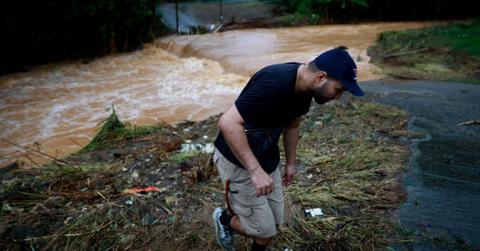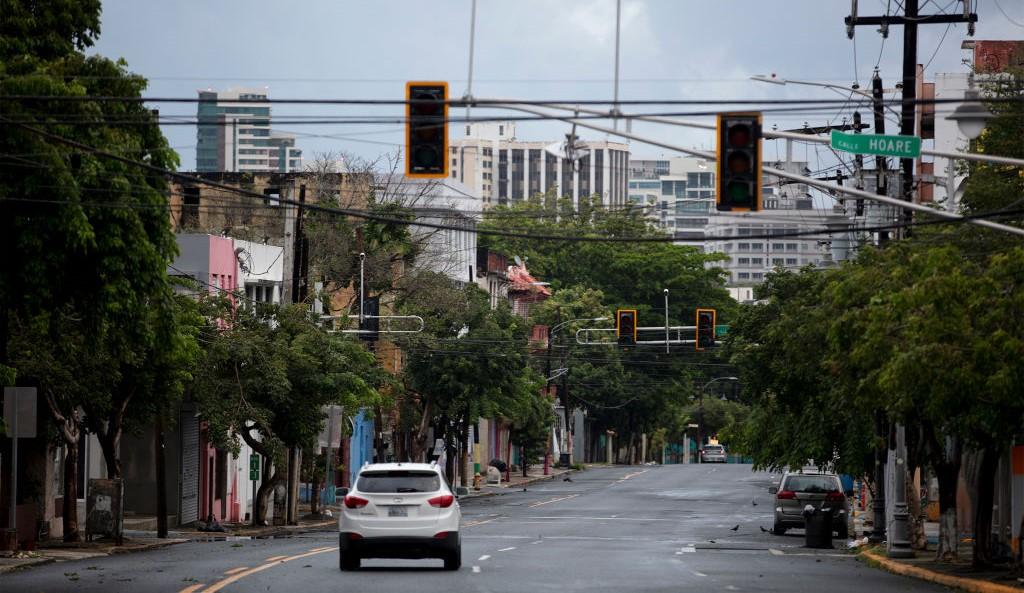Puerto Rico Pays Taxes, Gets Natural Disaster Relief From U.S.
As an unincorporated U.S. territory, most Puerto Ricans don’t get the right to vote. Does Puerto Rico pay taxes to the U.S. government?
Sept. 19 2022, Published 12:19 p.m. ET

Most Puerto Ricans don’t have the right to vote for U.S. president, but they still pay most types of federal taxes to the U.S. government.
How much do residents of Puerto Rico pay in taxes, and what does it get them in return?
Hurricane Fiona slammed Puerto Rico and Biden approved an emergency declaration.
As heavy rains and flooding continue to ravage Puerto Rico, Hurricane Fiona has left the nation without power. Some places got hit with as much as 30 inches of rain.
“Officials warned that the heavy downpours will weaken infrastructure that was damaged by Hurricane Maria five years ago,” wrote reporter Edgar Sandoval.
On Sunday, Sept. 18, President Biden approved an emergency declaration for Puerto Rico, which makes it eligible for the Disaster Relief Fund (DRF).
According to FEMA (Federal Emergency Management Agency), “The President’s action authorizes FEMA to coordinate all disaster relief efforts to support the Government of Puerto Rico and provide appropriate assistance for required emergency measures to save lives, protect property and public health, safety, and to lessen or avert the threat of this event in all 78 municipalities in Puerto Rico.”
Most Puerto Ricans pay federal taxes to the U.S. government.
In addition to paying taxes to the Puerto Rico government, many residents of Puerto Rico must also pay taxes to the U.S. federal government.
Generally, this doesn't include income taxes, but it does include taxes on customs, federal commodities, Social Security, Medicare and Medicaid, and unemployment.
The only time a resident of Puerto Rico must pay federal income taxes is if they work for the U.S. government, do business with the U.S. government, send money to the U.S., or earn income outside of Puerto Rico.
People below the poverty level in Puerto Rico don't have to file federal income taxes with the IRS. However, Puerto Rico’s Commonwealth government charges income taxes.
U.S. territories can receive federal funding related to natural disasters.
According to FEMA, “Through the DRF, FEMA can fund authorized federal disaster support activities as well as eligible state, territorial, tribal, and local actions such as providing emergency protection and debris removal."
This includes the “repair and restoration of qualifying disaster-damaged public infrastructure.”
By declaring Puerto Rico as an emergency in the midst of Hurricane Fiona, Biden opened up financial assistance for the territory. This is very important given that a reported 2,146 people and 254 pets had taken refuge in 100+ shelters as of the morning of Monday, Sept. 19.
Puerto Rico is five years out from Hurricane Maria, one of the most expensive natural disasters in U.S. history.
In 2017, Hurricane Maria killed about 2,981 people when it ripped through Puerto Rico. The nation’s infrastructure was repaired but remained damaged up until Hurricane Fiona knocked all the power out once again.
Hurricane Maria caused an estimated $96.3 billion in damage in Puerto Rico in 2017. Rainfall up to 37 inches, flooding, and mudslides caused massive devastation that the country has yet to fully recover from. It’s the third-most expensive natural disaster in U.S. history, topped only by Hurricane Harvey and Hurricane Katrina.

